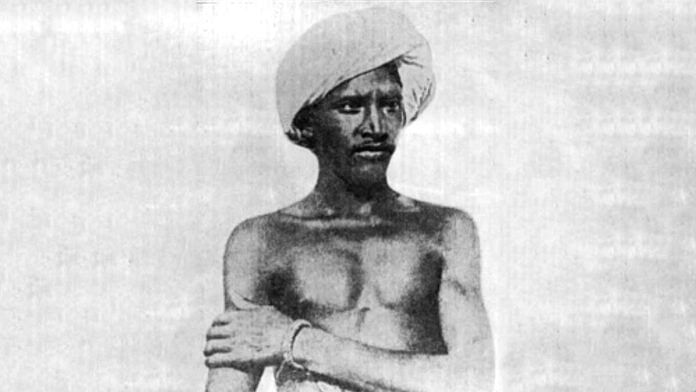New Delhi: When we think of the Indian freedom struggle, instantly a list of names come to mind. But for every Mahatma Gandhi, Jawaharlal Nehru, Lokmanya Tilak or Bhagat Singh, there are thousands of heroes who have been forgotten by history. And then, there are those who helped initiate the fight way before the dates in our history textbooks. One such pioneering freedom fighter was Birsa Munda.
Birsa Munda not only fought the British, but also championed the rights of tribal people and helped abolish the feudal system that plagued the Adivasi lands in Jharkhand and Bihar.
Born on 15 November 1875 in Ulihatu, Jharkhand (then part of the Bengal Presidency), Munda belonged to the Munda tribe of the Chhotanagpur Plateau area. He spent his childhood surrounded by Christian missionaries, whose main mission was to convert as many tribal people into Christians as possible. Munda went to a missionary school, where his teacher Jaipal Nag encouraged his sharp young pupil to study further and enrol in the German Mission School. For this, he was forced to convert to Christianity.
‘Father of the Earth’
Between 1886 and 1890, Munda spent a lot of time in Chaibasa, Jharkhand, which was close to the Sardars’ agitation against the British rule. Deeply influenced and disillusioned by what he saw the British and the Christian missionaries do to the Indians there, Munda decided to renounce Christianity and drop out of the German Mission School.
He went on to create a new religion called Birsait, which worshipped only one god. Given his growing influence in the tribal community, Birsait soon became the popular religion among the Mundas and Oraons. Nicknamed ‘Dharti Abba’ or Father of the Earth, Munda encouraged his followers to get back to their tribal roots and follow their traditions.
Through his religion, Munda also preached a strong anti-British sentiment and mobilised thousands of tribal folk to form guerrilla armies to attack the Raj. In the late 1890s, Munda set out to abolish the feudal system that the British had introduced in the Adivasi forest land. In this system, the British invited migrants from other states to come and take over work on tribal land, while they pocketed all the profits. Thus, the various tribes, who were the original owners of the land, were left bereft of land and any means of livelihood.
In March 1900, while fighting the British alongside his guerilla army, Munda was arrested in Jamkopai forest in Chakradharpur. A few months later, on 9 June, he passed away while in custody. Almost a decade after his death, the British introduced the Chhotanagpur Tenancy Act (CNT), which prohibits the transfer of tribal land to non-tribal parties.
More than a century later, Munda’s legacy still lives on, especially in Bihar, Jharkhand (which was created on his birth anniversary in the year 2000) and parts of Karnataka and Odisha. His revolutionary work not only put an effective dent in the British rule, it also helped mobilise tribals. It is due to him and many other such activists that tribals in India have a fighting chance at protecting their rights.
Also read: Why Jharkhand elections can determine the course of Indian politics




Please mention the name Khasra Kora. He was called upon , by the people.
Thank you for the brief history of Birsa Munda. I would like to make a little correction though. The spelling of ‘Abba’ should be changed to ‘Aaba’ (आबा), as spoken in Mundari.